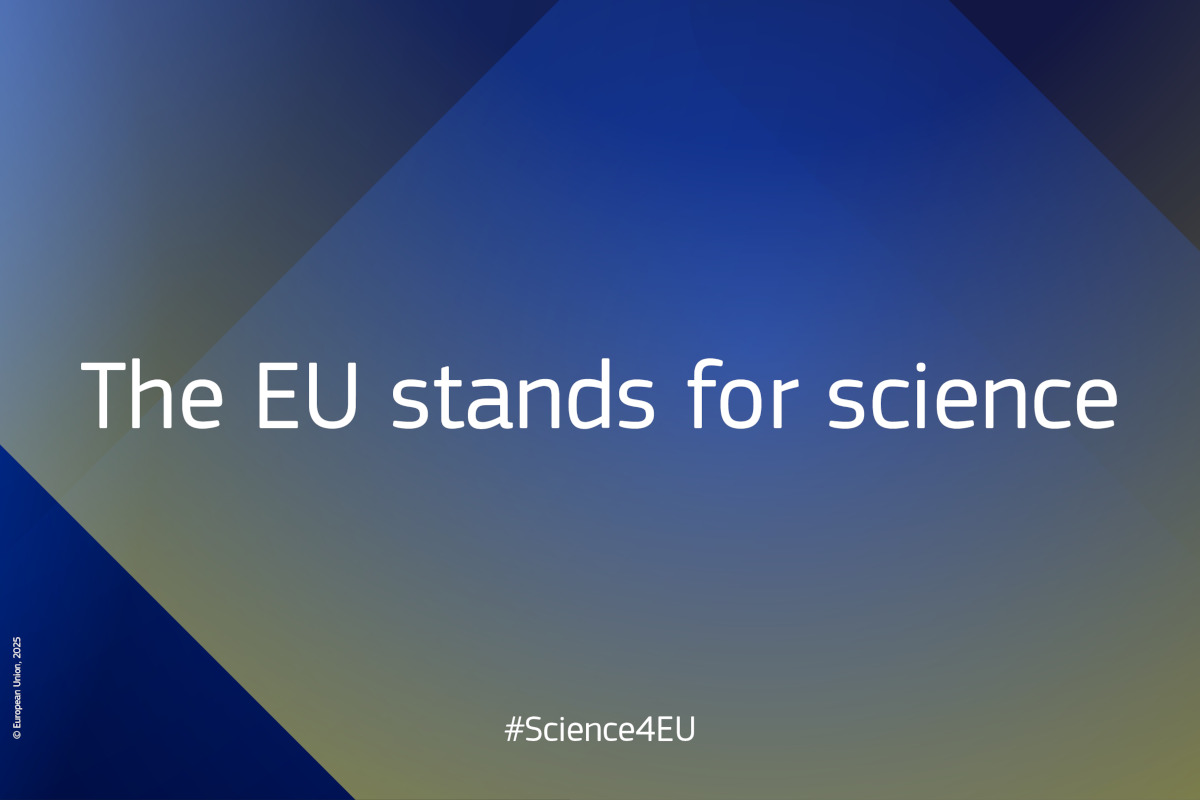As Europe prepares for the leap to 6G, researchers, policymakers and citizens are working together to make sure that the next digital revolution is not just faster, but also ethical, sustainable and inclusive.
Special series

Science4EU
The Science4EU campaign shows how the EU stands for science. It shines a spotlight on the scientists, researchers, and innovators working with EU support to improve our lives and shape a better future for everyone.
Do you also stand for science?
Podcast
Media AV Portal Audio
More stories

Deep under the Mediterranean, scientists have recorded the highest-energy neutrino ever detected. Now they are working out what this elusive particle could reveal about the universe we live in.
Most popular
-
1
-
2By Jonathan O’Callaghan
-
3By Gareth Willmer
-
4
-
5By MICHAELA NESVAROVA
Top videos
Turning undersea cables into a global natural hazard and environmental monitoring system
5 November 2025
New malaria vaccine offers hope for mothers and babies across Africa
3 November 2025
Past articles
Smarter decisions about real-world problems start with better data – and Earth observation can provide just that, thanks to European efforts to open up access to massive amounts of satellite data collected every day.
EU-funded researchers are developing powerful new telescopes to help uncover Earth-like planets around distant stars and advance the search for extraterrestrial life.
From droughts to disease, coffee and chocolate are under threat, but scientists and farmers are working together to keep these daily treats on the table.
This year’s EU Contest for Young Scientists showcased hard science with a social edge, with young scientists presenting innovations ranging from robot turtles to quantum discoveries.
EU-backed researchers are working with communities in overlooked regions to create tourism strategies that promote heritage while ensuring long-term sustainability.
With its sleek design and groundbreaking aerodynamics, the Airbus RACER isn’t just a prototype – it’s a symbol of Europe’s commitment to clean aviation.
From lasers to life sciences, Europe’s new plan for research and technology infrastructures aims to turn world-class science into everyday impact.
EU-funded researchers are working across countries and sectors to boost organic farming, support farmers and shape policy to help meet the target of 25% organic farmland in Europe and a significant increase in organic aquaculture by 2030.
Europe is building a virtual twin of the ocean to allow scientists, policymakers and citizens to test ideas, fight pollution and protect marine life – without even getting wet.
EU-funded researchers are scaling up sustainable production of microalgae-based proteins, lipids, pigments and carbohydrates that could transform food, animal feed and fragrance industries worldwide.
Drawing on nature, researchers have developed a method to pump CO2 captured from industrial processes into volcanic rocks for safe and permanent underground storage.
The EU and Europe’s bio-based industries are tapping into the hidden potential of wood to replace fossil resources in the production of high-performance resins with a low carbon footprint.
EU-funded researchers are cultivating fungi on agricultural waste to create smarter and greener construction materials able to adapt and react to their environment, and even repair themselves.
Researchers are testing a new method of capturing CO2 from energy-intensive industries and converting it into valuable chemicals and fuels.
New EU-funded research, sparked by a 17th-century shipwreck, reveals how centuries of trans-Pacific trade shaped medicine, shipbuilding and geographical knowledge, and built cross-cultural connections still relevant today.
EU-funded researchers are developing strategies to protect people from rising temperatures, focusing on vulnerable groups and clearer climate-health communication.
As shipping strives to decarbonise, a new wave of EU-funded innovation is proving that methanol-fuelled vessels could offer a scalable, low-emission alternative to diesel on the high seas.
Czech and Estonian researchers are joining forces to build a cross-border cybersecurity hub that will strengthen Europe’s digital defences in the face of growing cyber threats.
EU-funded researchers are exploring how dolphin arteries stay healthy with age in the hope of unlocking new ways to improve cardiovascular health in humans.
With quantum computing on the horizon, cryptographers are working to secure digital communications against a new generation of potential threats.





























